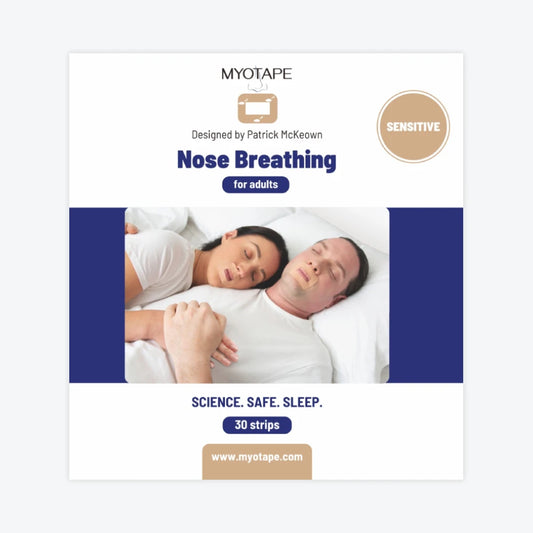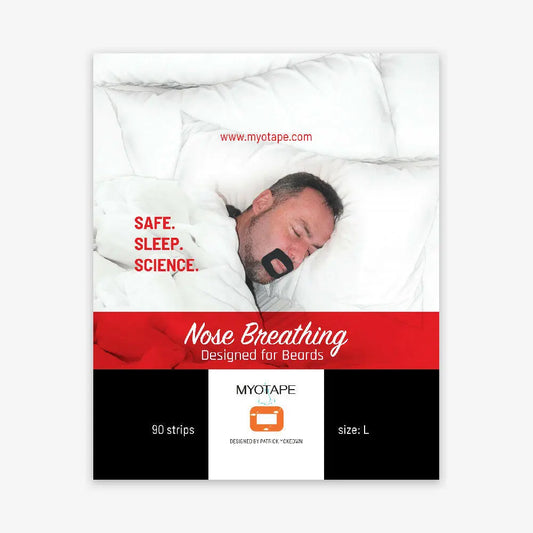Sleep apnea is a serious condition that often goes unnoticed until it leads to dire consequences. Affecting millions of people worldwide, it disrupts breathing during sleep and greatly impacts overall health, leading to a range of complications that can be life-threatening.
Even famous individuals are not immune to this condition, as there are several celebrities who have tragically lost their lives due to sleep apnea or its related complications.
In this article, you will find out about seven celebrities who died from sleep apnea and how sleep apnea played a role in their deaths.
You will also learn how serious sleep apnea can be and how it affects life span. Most importantly, this article will reveal a powerful yet easy solution to managing and treating sleep apnea.
What is Sleep Apnea?
Sleep apnea is characterized by repeated pauses in breathing during sleep, which can last from a few seconds to minutes. There are three main types of sleep apnea: obstructive sleep apnea (OSA), central sleep apnea (CSA), and mixed sleep apnea.
Sleep apnea symptoms can vary but often include loud snoring, gasping for air during sleep, and waking up with a dry mouth. Daytime sleepiness is also a common symptom. Sleep apnea can increase the risk of serious conditions like stroke, heart problems, or type 2 diabetes.
Risk factors for sleep apnea include obesity, age, male gender, smoking, and certain anatomical features such as a narrow airway or enlarged tonsils. Untreated sleep apnea can lead to serious health problems, including high blood pressure, heart disease, stroke, and diabetes.
7 Celebrities Who Died from Sleep Apnea
Below is a list of celebrities who have died from sleep apnea or whose deaths were reportedly linked to sleep apnea:
1. Carrie Fisher
 (Photo by Jason LaVeris/FilmMagic)
(Photo by Jason LaVeris/FilmMagic)
You would likely remember her for her iconic role as Princess Leia in the Star Wars franchise. Carrie Fisher is arguably the most famous person to die from sleep apnea.
Beyond her acting career, Fisher was also a talented writer and outspoken advocate for mental health. Her sudden death on December 27, 2016, at the age of 60, shocked fans around the world.
According to the coroner's report, sleep apnea was one of the contributing factors to her death, along with atherosclerotic heart disease and drug use.
2. Bappi Lahiri
Bappi Lahiri was known for his flamboyant style and pioneering contributions to Bollywood music. Often referred to as the "Disco King," Lahiri's influence spanned decades.
He brought disco music to Indian movies in the 1980s and 1990s. He sang many of the songs he created. His music was popular in different Indian languages, including Bengali, Telugu, and Kannada.
People loved his music for many years, even into the 2000s. In 1986, he set a world record by recording more than 180 songs in just one year. However, he died on February 15, 2022, at the age of 69. The official statement from the hospital stated that he died after suffering from OSA (Obstructive Sleep Apnea) and post-COVID-19 complications.
3. Amanda Peterson
Amanda Peterson, an American actress best known for her role in the 1987 romantic comedy "Can't Buy Me Love," captivated audiences with her charm and talent.
Tragically, the actress's life was cut short when she died on July 3, 2015, at the age of 43. The autopsy report indicated that she had died from an accidental morphine overdose, with sleep apnea as a contributing factor, according to her father.
4. Reggie White

(Photo by Al Pereira/Michael Ochs Archives/Getty Images)
Reggie White, also known as the "Minister of Defense," was a legendary NFL defensive end who played for the Philadelphia Eagles, Green Bay Packers, and the Carolina Panthers.
He is one of the most awarded athletes and defensive players in NFL history. His remarkable career earned him a place in the College Football Hall of Fame and Pro Football Hall of Fame.
White's unexpected death on December 26, 2004, at the age of 43, was a devastating blow to the sports community. The autopsy report revealed that he had died from a cardiac arrhythmia.
However, White also had sleep apnea, which the doctors believe might have played a part in his death, too.
5. Jerry Garcia
Jerry Garcia, the charismatic lead guitarist and vocalist of the Grateful Dead, was a central figure in the counterculture movement of the 1960s and 1970s. His musical genius and unique style left a lasting legacy.
Garcia's death on August 9, 1995, at the age of 53, was attributed to a heart attack. However, it was well-known that Garcia had been struggling with various health issues, including sleep apnea and weight problems, which were linked to his death.
6. John Candy
John Candy, a beloved Canadian actor and comedian, brought joy to millions through his roles in films like "Planes, Trains and Automobiles" and "Uncle Buck." His larger-than-life personality and comedic talent made him a household name. Candy's sudden death on March 4, 1994, at the age of 43, was a shock to fans and colleagues alike.
The cause of death was a heart attack, but Candy had been suffering from obesity and sleep apnea, which likely contributed to his untimely passing.
7. Antonin Scalia
Antonin Scalia was a former Associate Justice of the Supreme Court of the United States and was a towering figure in American jurisprudence. Known for his sharp intellect and conservative views, Scalia's influence on the Court was profound. He sadly passed away on February 13, 2016, at the age of 79, which was a significant loss in the legal community.
The cause of death was officially listed as natural causes, but it was later revealed that Scalia had been suffering from sleep apnea and other health problems, which must have played a role in his death. Scalia's passing highlighted the often-overlooked impact of sleep apnea on older adults and those with multiple health issues.
The Dangers of Untreated Sleep Apnea
From the experiences of the above celebs who died from sleep apnea, it is clear that sleep apnea is dangerous and can be fatal if left untreated. Here are the short-term effects of untreated sleep apnea:
- Excessive daytime sleepiness
- Difficulty concentrating and memory problems
- Mood changes, including irritability and depression
- Morning headaches
- Dry mouth or sore throat upon waking.
These short-term effects can significantly impact a person's quality of life and daily functioning. However, if left untreated, sleep apnea can contribute to the development of serious long-term health problems, including:
- High blood pressure
- Heart disease and stroke
- Type 2 diabetes
- Metabolic syndrome
- Liver problems
- Cognitive impairment and dementia.
What's the worst that can happen with sleep apnea?
Apart from the short- and long-term effects of sleep apnea, it could get even worse because, in severe cases, untreated sleep apnea can lead to life-threatening complications, such as:
- Sudden cardiac death
- Pulmonary hypertension
- Cardiac arrhythmias
- Severe obesity hypoventilation syndrome.
Sleep Apnea-Related Deaths: Statistics and Facts
Sleep apnea is a common but often undiagnosed sleep disorder. Here's what you need to know:
1. It's widespread: About 39 million adults in the U.S. and 936 million worldwide have obstructive sleep apnea (OSA).
2. Many don't know they have it: While 30 million Americans likely have sleep apnea, only 6 million are diagnosed.
3. Snoring is a key sign: Up to 94% of people with sleep apnea snore.
4. It can be serious: Untreated sleep apnea can lead to heart, kidney, and other health problems.
5. It's more common than you think: Three out of four U.S. adults have symptoms of some kind of sleep disorder.
How many people have died from sleep apnea?
It is challenging to determine the exact number of deaths directly attributed to sleep apnea, as it is often a contributing factor rather than the sole cause of death. However, research has shown that untreated sleep apnea significantly increases the risk of all-cause mortality.
Demographics most affected by sleep apnea
Sleep apnea can affect people of all ages and genders, but certain demographics are at a higher risk:
- Men
- Older adults
- Individuals with obesity
- People with certain anatomical features (e.g., narrow airways, enlarged tonsils)
- Smokers and alcohol users.
Life Expectancy and Sleep Apnea
Recent research by the American Academy of Sleep Medicine sheds light on this important topic of life span in sleep apnea sufferers. The study, which followed over 1,500 people for 18 years, found that those with severe sleep apnea face a much higher risk of death compared to those without the condition.
Here are the key findings:
1. People with severe sleep apnea are three times more likely to die from any cause compared to those without sleep apnea.
2. If left untreated, the risk is even higher - more than four times the normal risk.
3. However, there's good news: proper treatment can make a big difference. People who regularly used CPAP (a common treatment for sleep apnea) had a lower risk of death, especially from heart-related issues.
So, can you live a long life with sleep apnea? The answer is yes, but it depends on getting diagnosed early and following through with treatment. If you think you might have sleep apnea, seeing a doctor is crucial. Getting proper treatment could significantly improve your chances of living a longer, healthier life.
Sleep Apnea Prevention and Treatment Options
Making lifestyle changes can help manage sleep apnea and improve overall health:
- Maintaining a healthy weight
- Exercising regularly
- Avoiding alcohol, sedatives, and smoking
- Sleeping on your side instead of your back
- Breathing exercises like the Buteyko breathing method
- Medical devices (CPAP, BiPAP): Continuous Positive Airway Pressure (CPAP) and Bilevel Positive Airway Pressure (BiPAP) are common and effective treatments for sleep apnea. These devices deliver pressurized air through a mask to keep the airways open during sleep.
Another effective and simple way to treat sleep apnea is the use of mouth tapes. How can mouth taping help with sleep apnea?
How Mouth Tapes Help Manage Sleep Apnea
Mouth taping, a practice that involves using specially designed tape to keep the mouth closed during sleep, has gained attention as a potential complementary treatment for sleep apnea. Although mouth tapes in combination with CPAP have been said to manage sleep apnea, but it is important to know why they help.
Mouth taping can significantly enhance CPAP therapy for sleep apnea patients by promoting nasal breathing, which is more effective for CPAP use. A study showed that nose breathers are more likely to stick with CPAP therapy long-term compared to mouth breathers.
By preventing air leaks from the mouth and ensuring consistent nasal breathing, mouth tapes like MyoTape can improve CPAP effectiveness, leading to better sleep quality and long-term management of sleep apnea symptoms.
Furthermore, mouth taping promotes nasal breathing, which offers significant benefits over mouth breathing, especially for individuals with sleep apnea. When you breathe through your nose, the air is filtered, warmed, and humidified before reaching your lungs, which helps reduce airway irritation and inflammation. The nose's natural filtration system traps dust and allergens, while the warming and humidifying processes prevent dryness in the throat and lungs.
Did you know that many celebrities also use mouth tapes to better their sleep and health? Some of them highly recommend MyoTape.
MyoTape Helps You Fight Sleep Apnea
MyoTape mouth tapes can make a big difference by helping you breathe through your nose, reducing snoring, and making your CPAP therapy more effective. It's a simple solution that can lead to better sleep and improved health. What makes MyoTape great is the fact that it is safe to use at night because it allows for mouth puffing, which it critical for people with OSA, making it an ideal mouth taping product for sleep apnea.
Check out our MyoTape mouth tape products today— we have several options, including mouth tapes for adults, for beards, for kids, for sensitive skin, and for sports.








